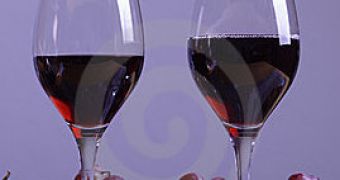Most people are well aware of the fact that those who occasionally indulge in a glass or two of wine are likely to lead a healthier and longer life than those who refrain themselves from such habits.
Thus, it is a commonly held belief that wine is quite successful in safeguarding people against various heart diseases.
Still, a new study maintains that even heart attack survivors have a lot to gain from their sticking to the habit of drinking no more than two glasses of wine per day.
More precisely, it is being said that this second category of people are likely to experience an increase in their life expectancy, all thanks to wine's ability to reduce their risks of suffering a second attack by as much as 13%.
The Harvard researchers who pieced together this study into how wine benefits those who have suffered a heart attack wished to draw attention to the fact that only those who used to regularly consume wine prior to their suffering the first heart attack are likely to benefit from not putting this habit behind them, Daily Mail informs us.
Thus, the people who almost never gave wine a try all throughout their lives must not take up the habit just to make sure that their heart is well prepared to keep working for many years to come.
“Our data suggest that in subjects with established cardiovascular disease, wine has similar effects to those in the general population. In our study, subjects who drank wine appeared healthier than those who did not drink,” the researchers write in their report.
However, as dietitian Tracy Parker puts it, “There may be some protective benefits to moderate drinking but, whether you have heart disease or not, this research is not a reason for you to start drinking alcohol if you don't already.”
“There are much healthier ways to protect your heart, like keeping physically active, eating a healthy and balanced diet, and stopping smoking,” Tracy Parker wished to stress.

 14 DAY TRIAL //
14 DAY TRIAL //